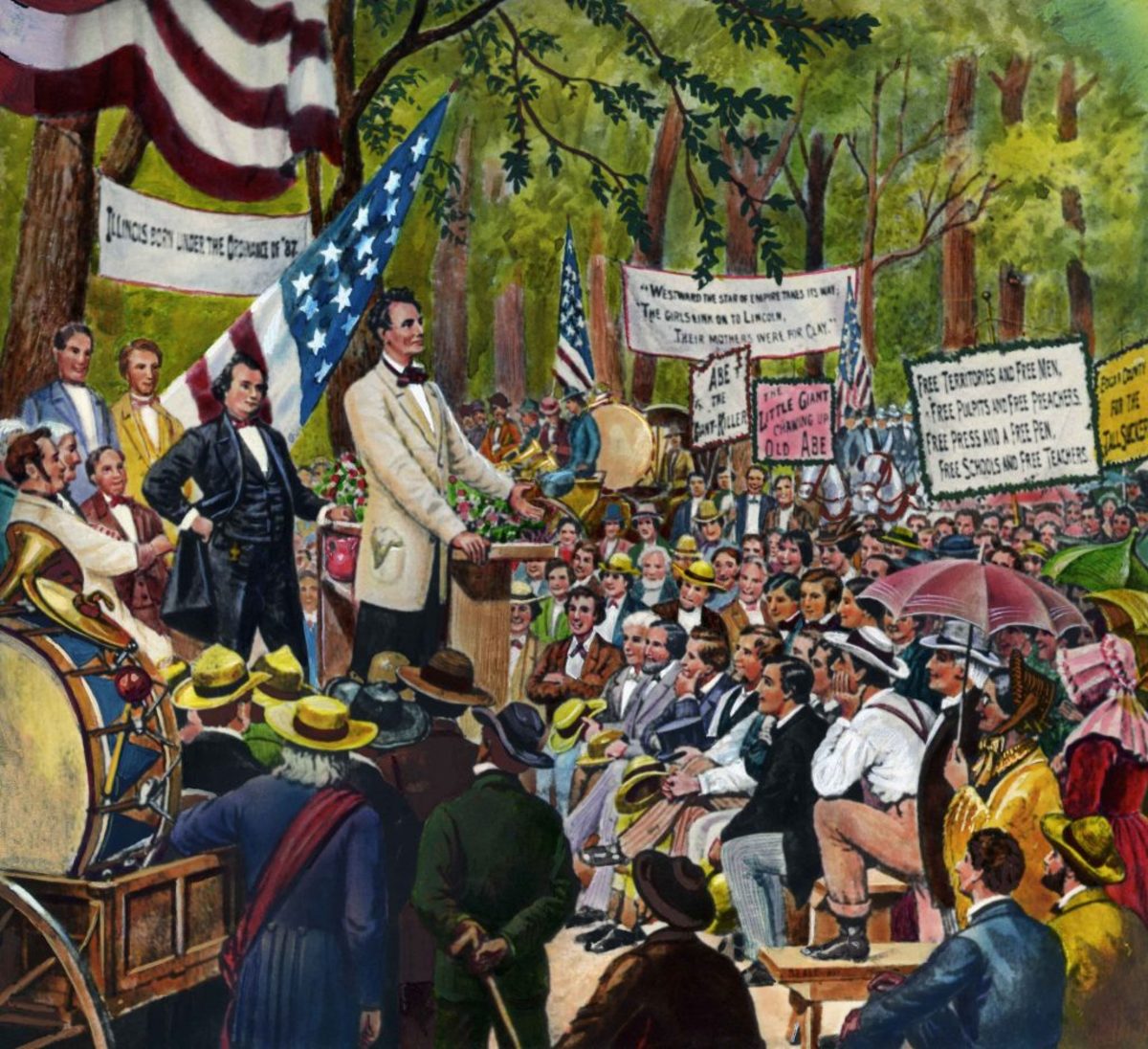Lincoln-Douglas debates were a series of debates between Abraham Lincoln and Illinois Senator Stephen A. Douglas in their 1858 campaign for the United States Senate. The debates centered on the extension of slavery into free territory. Douglas believed that the people of the territories should decide for themselves whether they wanted slavery. Lincoln thought slavery was wrong and hoped to end the practice. Douglas won the Senate election, but the debates made Lincoln a national figure. Two years later, he was elected president. As president, Lincoln helped end slavery in the United States.
Background.
The slavery controversy was a heated issue of the mid-1800’s. As the Union grew in size, Congress fiercely debated whether new states should allow slavery. Douglas had been a sponsor of the Kansas-Nebraska Act, passed by Congress in 1854. This law stated that questions of slavery in the new territories were to be decided by the settlers rather than by Congress. Douglas called this policy popular sovereignty. His opponents warned that the policy would make slavery national and permanent (see Popular sovereignty ). 
Douglas was a Democrat. In 1858, the Republicans nominated Lincoln to run against Douglas for the U.S. Senate. In the months leading up to the election, Lincoln challenged Douglas to a series of debates. Douglas accepted the challenge and named seven Illinois towns for the meetings. The towns were Ottawa, Freeport, Jonesboro, Charleston, Galesburg, Quincy, and Alton.
The debates.
The first debate, at Ottawa, took place on Aug. 21, 1858. The last, at Alton, was on October 15. Each candidate spoke outdoors for an hour and a half. Large crowds attended each debate except the one at Jonesboro, in the southernmost part of the state. Newspapers around the country reported and reprinted the debates.
Lincoln and Douglas debated the issue of slavery. Lincoln regarded slavery “as a moral, social, and political evil.” Douglas tried to convince voters that Lincoln was a dangerous radical. Lincoln said that Congress had “the right and duty” to prevent slavery’s spread. He argued that the Supreme Court of the United States, in the Dred Scott Decision (1857), had opened the way for slavery to enter all the territories (see Dred Scott Decision ). He thought that the decision was evidence of a scheme to spread slavery nationwide. In the debate at Freeport, Douglas denied this argument. He said that the people of any territory could keep slavery out simply by refusing to pass laws protecting it. This position became known as the Freeport Doctrine.
Douglas narrowly defeated Lincoln in the November Senate election. In 1860, both men ran for president. The Democratic Party split its votes among Douglas and two other candidates. Lincoln, the Republican candidate, won the election.
